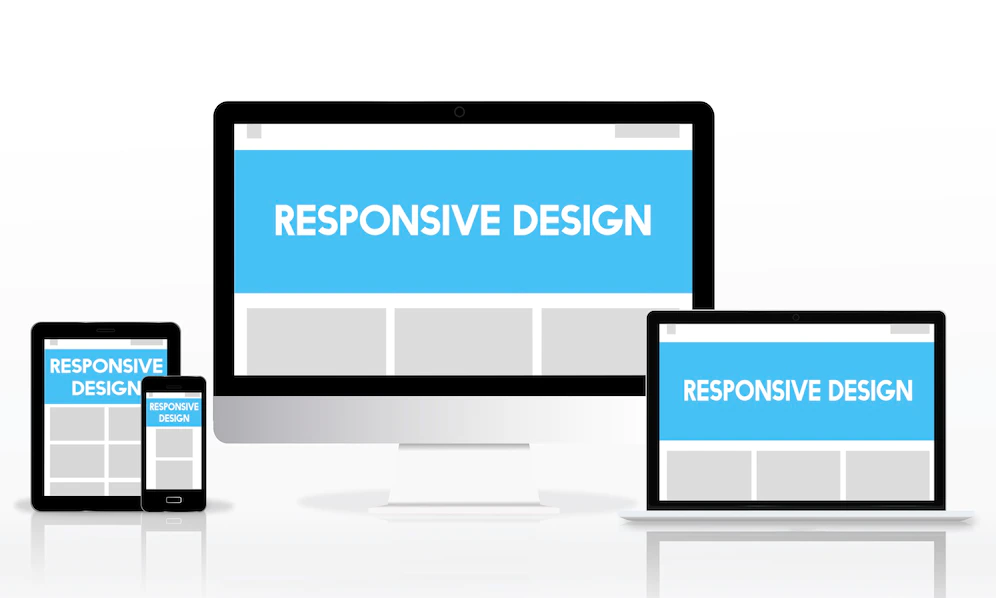What is Responsive Web Designing, And Why do You Need it?
5 Mins Read
Published on: 17 July 2023
Last Updated on: 20 November 2024

toc impalement
Responsive web design has transformed how websites adapt to different screen sizes and devices, providing users with an optimal viewing experience. This article explores the concept of responsive web design, highlighting its significance in the modern online landscape.
It delves into user benefits, the impact on SEO, simplified website management, future-proofing websites, and the importance of collaborating with web design professionals like White Peak,
Hence, stick around to learn why your website needs responsive web design so that you can effectively implement it in your web designing facts or planner.
What is A Responsive Web Design?

Responsive web designing is one of the most critical and innovative means of web designing. This form of web designing revolutionized it as it was adapted to the user’s device.
The primary goal behind RWD is to design websites that adapt to user’s needs and wants. Hence, this revolutionary web design form included user’s devices.
Therefore, it initiated a trend that changed the very landscape for good. Hence, this makes it a perfect step forward for web designing.
Why do You Need it?
RWD, or responsive web design, has become necessary in the world of web design. This is primarily because as more and more people evolve digitally, their devices also improve.
As a result, people use many different devices to access the internet. Hence, developers need to include inclusivity while designing their websites so that more and more people can access them without any hassle.
Primary Elements of Responsive Web Designs
Web design has truly evolved, and responsive web design has furthered this. However, to truly understand this form of web designing, you need to be clear about its primary components.
Here are some of the most prominent components of web design that you need to know to have a better understanding:
- CSS & HTML: CSS and HTML comprise the overall backbone of responsive web designing. HTML dictates the structure, while CSS controls the layout.
- Media Queries: Media query is one of the most fundamental concepts of CSS3 as it decides the resolution and screen size
- Speed: The final component is speed. The website should have speed and responsiveness to function effectively.
The Significance of Mobile Devices:
The emergence of mobile devices, such as smartphones and tablets, has transformed how people access the internet. Nowadays, users spend considerable time surfing the web on their mobile devices.
Therefore, websites must cater to this expanding user base. Responsive web design addresses this need by allowing sites to adapt and provide an optimized experience on smaller screens.
It eliminates the frustration of zooming in and out or scrolling horizontally, creating a seamless and user-friendly experience for mobile users.
Benefits for Users:
Responsive web design offers several benefits to users, enhancing their overall browsing experience. Responsive websites load faster since they are optimized for specific devices, reducing waiting time and ensuring a smoother navigation experience.
Additionally, responsive design eliminates the need for users to switch between different versions of a website (e.g., mobile vs. desktop), providing a consistent and familiar interface across all devices.
This consistency enhances usability, as users can easily navigate and find what they’re looking for, regardless of their device.
Impact on SEO:
Search engine optimization (SEO) ensures that websites are discoverable and rank well in search engine results. Responsive web design positively impacts SEO by providing a consistent user experience across all devices.
Search engines like Google favor responsive websites as they are easier to crawl and index.
Moreover, responsive design eliminates the need for duplicate content on different website versions, preventing content duplication issues and improving overall SEO performance.
Simplified Website Management:
Managing multiple website versions, such as a desktop and mobile, can be complex and time-consuming.
Responsive web design simplifies website management by consolidating all content into a single website. Changes or updates need only be made once, and they will automatically reflect across all devices.
This streamlined approach saves time and resources for businesses, allowing them to focus on creating valuable content and providing exceptional user experiences.
Future-Proofing Websites:
With continuous technological advancements and the proliferation of new devices, responsive web design offers a future-proof website solution.
Instead of creating separate websites for each new device that emerges, responsive design ensures that websites can adjust to any screen size or resolution.
This scalability makes websites more adaptable and resilient to technological changes, providing a solid foundation for long-term success in the ever-evolving digital landscape.
Collaborating With Web Design Professionals:
Implementing responsive web design requires technical expertise and an understanding of best practices.
Collaborating with web design professionals, such as agencies specializing in responsive design, can ensure that websites are crafted with precision and attention to detail.
These professionals possess the knowledge and experience to create visually appealing and functionally efficient websites that adapt seamlessly across all devices, enhancing user experiences and driving business success.
Is it For You?
In today’s digital landscape, websites must deliver exceptional user experiences across various devices. Responsive design has become necessary with the increasing use of smartphones, tablets, and other mobile devices.
Responsive design eliminates the limitations of fixed dimensions and allows websites to adapt seamlessly to different screen sizes and resolutions.
Whether a user is accessing the website from a desktop computer, a smartphone, or a tablet, responsive design ensures that the website is optimized for their specific device.
This enhances the user experience by providing consistent and intuitive navigation, readable content, and visually appealing designs.
By partnering with web design professionals like White Peak Marketing, businesses can leverage their responsive design expertise to create websites optimized for all screens.
These professionals deeply understand the latest web design trends, technologies, and best practices. They can ensure that the website not only looks great on different devices. They also perform optimally, providing fast load times and smooth interactions.
The End
In summary, embracing responsive design and partnering with web design professionals enables businesses to optimize their websites.
Responsive web design empowers businesses to connect with their audiences effectively and provide an engaging online presence.
By delivering exceptional user experiences across devices, businesses can gain a competitive edge, increase user engagement, and drive conversions in today’s digital landscape.
Read Also:


















Comments Are Closed For This Article